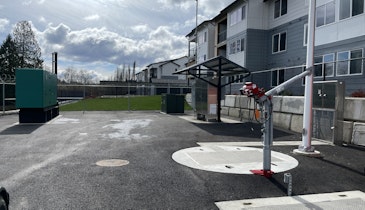Interested in Systems/ATUs?
Get Systems/ATUs articles, news and videos right in your inbox! Sign up now.
Systems/ATUs + Get AlertsTo the editor:
You have hit a “home run” with the June Editor’s Notebook story titled “Call Your Congressman.” I am one of those 90 million taxpayers with an onsite system referenced by Eric Casey in this article.
The ugly truths shared about the disparity in funding for centralized systems over decentralized systems should be provided in the daily read file of every elected official in the country representing the 90 million taxpayers with onsite systems.
America’s children and grandchildren will continue to face unhealthy blackwater in ditches and straight pipes carrying untreated sewage to our streams, and we now learn that the U.S. Environmental Protection Agency has just a one-person staff with an impossible task of oversight of Clean Water Act funding of onsite/decentralized systems for 50 states.
I live in north-central West Virginia and joined with four unincorporated communities that had many older onsite septic systems with problems. It was not the septic tanks failing as much as it was very small lots with failing drainfields that individual homeowners could not repair or replace under today’s rules.
We began researching cluster drainfields and decentralized sewage systems in 2001, and it has been challenging and very frustrating to gain approval for a decentralized project, even with an incorporated onsite community wastewater cooperative responsible for the operation and maintenance required by an EPA Level 5 Responsible Management Entity. Yes, we could have already had public sewage had we not opposed and just went with an extension of centralized sewage.
There is great value in actual cost savings with decentralized operation and maintenance that would help cover long-term debt payments for the struggling ratepayers, but this seems to get shortchanged by many individuals at those government agencies favoring a centralized system. It sure seems reasonable to ask for the EPA and Congress to require more analysis than opinion before imposing higher costs to the ratepayers.
Community members can share and repeat the data from documented case studies on onsite/decentralized sustainability until we are blue. But after all these years, we wonder if the politicians and economic developers are listening. In comparison, professionals and public service providers with no experience with decentralized systems can say no and only support cookie-cutter planning for more of the same centralized sewer service and they seem to get the ears and the funds.
Onsite installers, sanitarians, manufacturers, elected officials and other professionals – please join in this discussion and debate.
Paul E. Hamrick
Clarksburg, West Virginia





